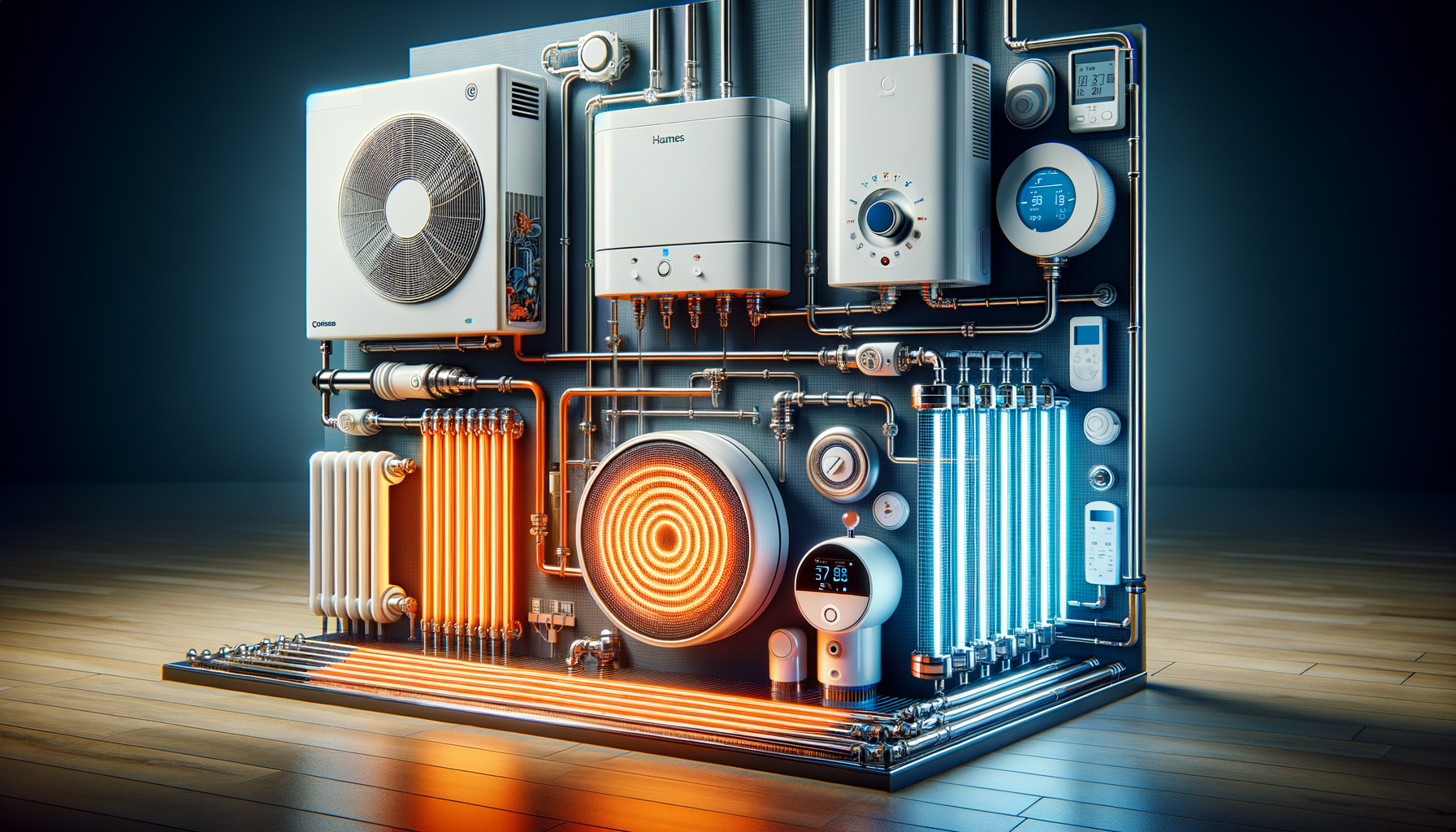Exploring Modern Heating Systems: Efficiency, Types, and Innovations
Heating systems are vital for comfort and energy efficiency, evolving with technology to meet modern needs.

Understanding the Basics of Heating Systems
Heating systems are integral to maintaining comfort in homes and workplaces, especially during colder months. At their core, these systems are designed to generate heat and distribute it throughout a space, ensuring a consistent and comfortable indoor environment. The importance of heating systems cannot be overstated, as they directly impact energy consumption, indoor air quality, and overall comfort.
There are various types of heating systems, each with its unique mechanisms and benefits. Common types include furnaces, boilers, heat pumps, and radiant heating systems. Furnaces, for example, heat air and distribute it through ducts, while boilers heat water to provide steam or hot water for heating. Heat pumps, on the other hand, transfer heat from outside to inside, offering a versatile solution for both heating and cooling.
Understanding the basics of these systems helps homeowners and businesses make informed decisions about installation, maintenance, and upgrades. Key factors to consider include the size of the space, energy efficiency, and the specific heating needs of the occupants. With technology continuously advancing, modern heating systems offer improved efficiency and performance, making them a crucial component of any building’s infrastructure.
Types of Heating Systems: An In-Depth Look
When it comes to heating systems, there is no one-size-fits-all solution. Different types of systems cater to varying needs and preferences. Here, we delve into some of the most prevalent heating systems available today:
- Furnaces: These are among the most common heating systems in North America. They operate by heating air and distributing it through ducts. Modern furnaces are typically powered by natural gas, electricity, or oil.
- Boilers: Boilers heat water to produce steam or hot water, which is then circulated through pipes to radiators or radiant floor systems. They are known for their efficiency and ability to provide uniform heating.
- Heat Pumps: These systems are highly efficient as they transfer heat from one place to another. They can be used for both heating and cooling purposes, making them versatile and energy-efficient.
- Radiant Heating: This system involves installing heating elements beneath floors or within walls to provide direct heat. It offers consistent temperatures and is often appreciated for its comfort and efficiency.
Choosing the right type of heating system depends on various factors, including the climate, the size of the space, and personal preferences. Each system has its advantages and potential drawbacks, making it essential to evaluate them carefully before making a decision.
Energy Efficiency and Environmental Impact
As the world becomes increasingly aware of environmental issues, the energy efficiency of heating systems has become a significant consideration. Efficient heating systems not only reduce energy consumption but also lower utility bills and minimize environmental impact.
Modern heating systems are designed with energy efficiency in mind. Many systems now come with energy ratings that help consumers identify the most efficient options. For instance, furnaces with high Annual Fuel Utilization Efficiency (AFUE) ratings convert a greater percentage of fuel into heat, reducing waste and emissions.
Moreover, the use of renewable energy sources, such as solar-powered heating systems, is gaining popularity. These systems harness solar energy to provide heating, significantly reducing reliance on fossil fuels. Additionally, advancements in smart technology have led to the development of programmable thermostats and smart heating systems that optimize energy use by adjusting settings based on occupancy and weather conditions.
By choosing energy-efficient heating systems, homeowners and businesses can contribute to environmental conservation while enjoying the benefits of reduced energy costs and improved indoor comfort.
Innovations in Heating Technology
The heating industry is continuously evolving, with innovations aimed at enhancing efficiency, comfort, and convenience. One notable advancement is the integration of smart technology into heating systems. Smart thermostats, for example, allow users to control their heating remotely via smartphones, optimizing energy use and providing personalized comfort settings.
Another exciting development is the rise of geothermal heating systems. These systems use the stable temperatures beneath the earth’s surface to provide heating and cooling, offering a sustainable and efficient solution. Geothermal systems are known for their longevity and low operating costs, making them an attractive option for environmentally conscious consumers.
In addition to these, advancements in materials and design have led to the creation of more efficient and compact heating units. These innovations not only improve performance but also reduce the space required for installation, making them suitable for a wider range of applications.
As technology continues to advance, the future of heating systems looks promising, with further innovations expected to enhance efficiency, reduce costs, and provide even greater comfort.
Choosing the Right Heating System for Your Needs
Selecting the appropriate heating system is a crucial decision that impacts comfort, energy use, and costs. To make an informed choice, several factors need to be considered:
- Climate: The local climate plays a significant role in determining the type of heating system that will be most effective. For instance, heat pumps are ideal for moderate climates, while furnaces may be better suited for colder regions.
- Space: The size and layout of the space to be heated will influence the type of system required. Larger spaces may benefit from centralized systems, whereas smaller areas might be adequately served by localized heating solutions.
- Budget: Initial installation costs, as well as long-term operating expenses, should be considered. While some systems may have a higher upfront cost, their efficiency can lead to savings over time.
- Energy Efficiency: Opting for systems with high energy ratings can lead to significant savings on utility bills and reduce environmental impact.
By evaluating these factors and consulting with heating professionals, homeowners and businesses can select a heating system that meets their specific needs and preferences, ensuring comfort and efficiency for years to come.